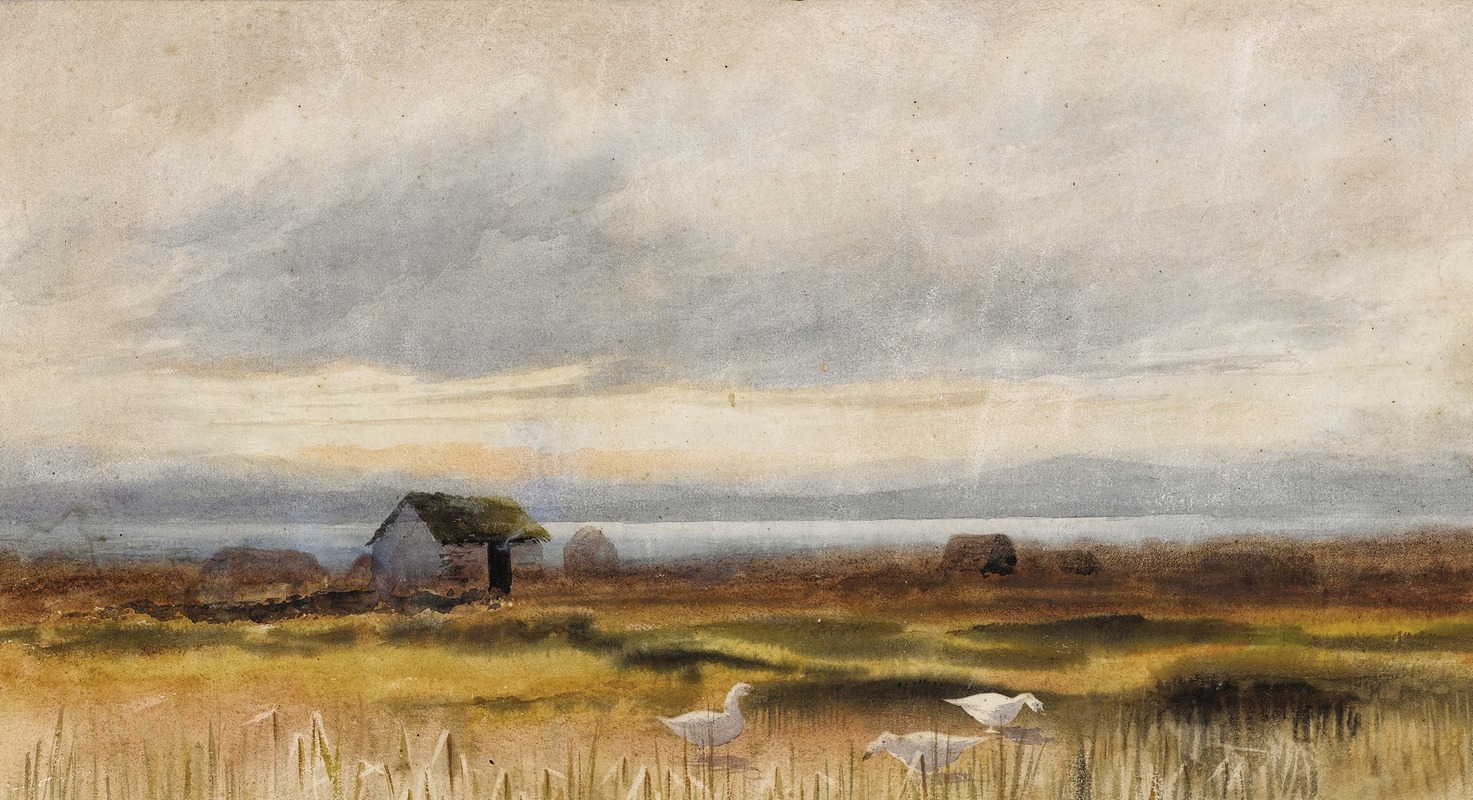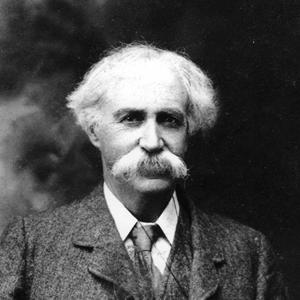

William Percy French was an Irish songwriter, author, poet, entertainer and painter.
French was born at Clooneyquinn House, near Tulsk, County Roscommon, the son of an Anglo-Irish landlord. He was the third of nine children of Christopher French and Susan Emma French (née Percy). His younger sister, Emily later Emily de Burg Daly was also a writer.
He was educated in England at Kirk Langley and Windermere College before going to Foyle College in Derry and wrote his first successful song while studying at Trinity College Dublin (TCD) in 1877 for a smoking concert. The song, "Abdul Abulbul Amir", was published in 200 copies for £5 and French sold each copy for 2s6d making a small fortune. However, he fatally omitted to register copyright on the song and lost all the subsequent income from the royalties as it was re-published without his name. The royalties were restored to his widow and daughters after his death. The song later became hugely popular and was falsely claimed by other authors. Although he lost copyright, French always claimed authorship and did so on the sleeve of his song "Slattery's Mounted Fut" (1889) and in every issue of the weekly The Jarvey. Brendan O'Dowda claimed to have discovered via the popularity of versions of the song at the American military academies in the 1980s that French had written the lyrics while at Trinity College. He claimed responsibility for the restoration of the royalties in the 1980s. Ettie French gives a different account of how the royalties were restored in her book Willie (1995) on her father's life. She claimed the royalties were restored in the 1940s to the family. The ballad resembles a comic opera spoof. "Pot Skivers" were the chambermaids at the college, thus Ivan "Potschjinski" Skivar would be a less than noble prince, and as Bulbul is an Arabic dialectic name of the nightingale, Abdul was thus a foppish "nightingale" amir (prince). When French died, not at all wealthy, he was owed a fortune in unpaid royalties. A windfall in royalties came to his family in the 1940s from "Abdullah Abulbul Ameer" and "Phil the Fluter's Ball".
French graduated from TCD as a civil engineer in 1881 and joined the Board of Works in County Cavan as an Inspector of Drains. It is said that he wrote his best songs during this period. He also painted: French was a prolific painter of landscape watercolours, and during this period considered art to be his true vocation. In fact, when he became well-known later in his life, his paintings from his time as a civil engineer became fashionable and sought after. The volcano Krakatoa erupted in 1883 while French was in Cavan, and the particles of volcanic ash caused dramatic sunsets all over the world. French painted some of his finest landscapes in this period as he captured the spectacular skies. French exhibited his pictures in the Royal Hibernian Academy (RHA) and sometimes gave them short lyrical poems for titles, such as "Only the sullen seas that flow/ And ebb forever more,/ But tarry awhile sad heart and, lo!/ A light on that lonely shore".
When the Board of Works reduced its staff around 1888, French turned to journalism as the editor of The Jarvey, a weekly comic paper. When the paper failed, French's long and successful career as a songwriter and entertainer began. He had lived by the canal in Dublin at 35 Mespil Road before going to London. He famously wrote to his friends when he moved there: "We have come to live by the canal, do drop in". A granite seat was erected in 1988 on the canal near his home, dedicated to French. It was sponsored by the Oriel Gallery and bears another witticism of French's: "Remember me is all I ask, / And if that memory proves a task, forget".
French was renowned for composing and singing comic songs and gained considerable distinction with such songs as Phil the Fluther's Ball, Slattery's Mounted Foot, and The Mountains of Mourne (this last was one of several written with his friend, stage partner and fellow composer, Houston Collisson). The song was set to the same air as Thomas Moore Moore's "Bendmeer's Stream" which, in turn, was set to the old Irish Air "Carraigdhoun". French also wrote many sketches and amusing parodies, the most famous of which is The Queen's After-Dinner Speech, written on the occasion of Queen Victoria's visit to Dublin in 1900, in which French drolly suggests "There's a slate off Willie Yeats". In addition, he wrote several poems, some he called "poems of pathos". Many of his poems are on the theme of emigration. He was a regular contributor to The Irish Cyclist, a weekly comic journal.
"Are Ye Right There Michael", a song ridiculing the state of the rail system in rural County Clare caused such embarrassment to the rail company that – according to a persistent local legend – it led to a libel action against French. According to the story, French arrived late at the court, and when questioned by the judge he responded "Your honour, I travelled by the West Clare Railway", resulting in the case being thrown out.
In January 1920, when he was 65 years old, French became ill while performing in Glasgow. He died from pneumonia in Formby, England at the home of his cousin, Canon Richardson of Green Lea, College Avenue, on 24 January 1920. His grave is in the churchyard of St Luke's Church, Formby, Merseyside.

